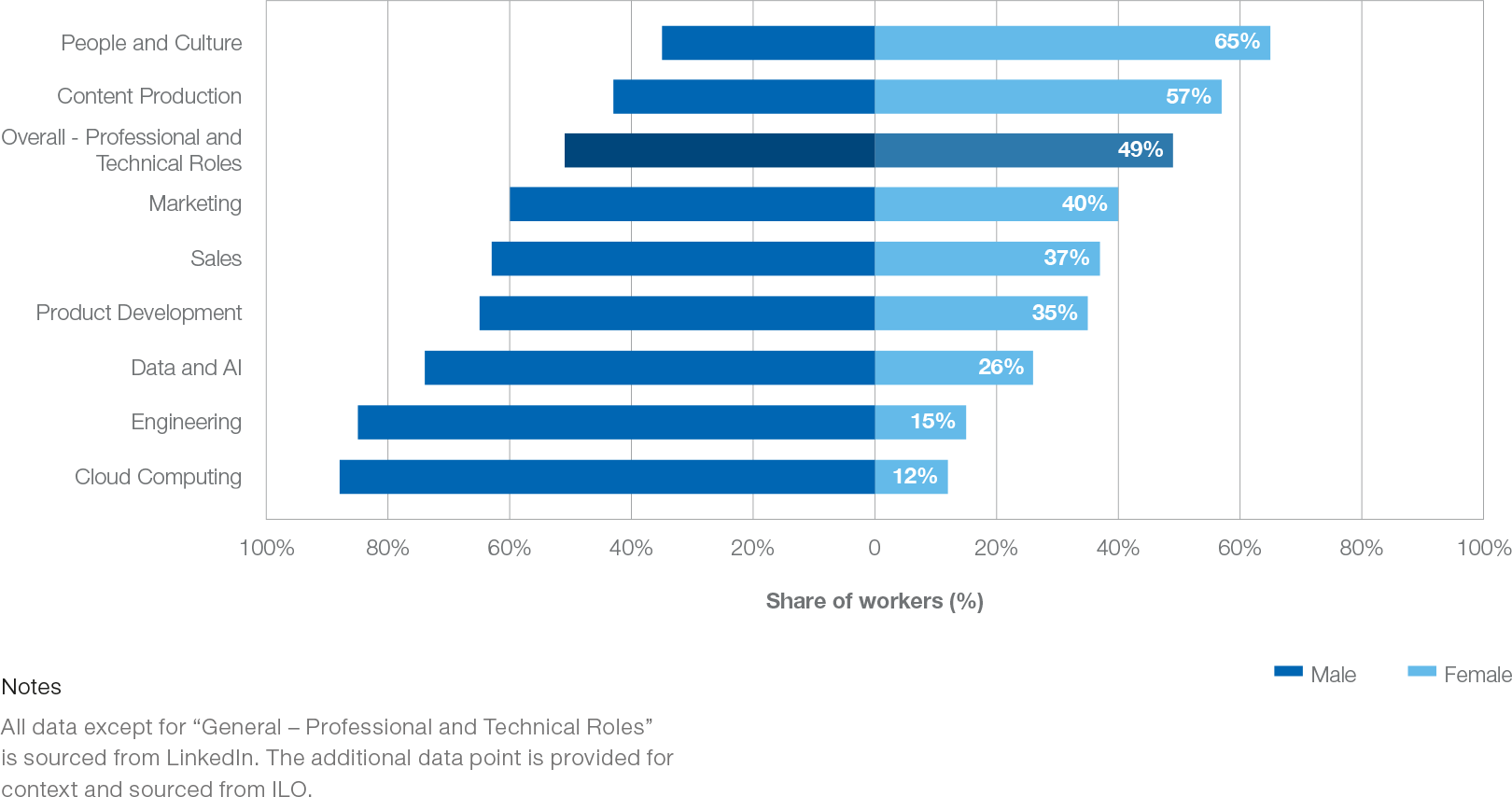Introduction
The technology industry has experienced a rapid and resilient growth in the past decade and has accelerated faster during the 2020 COVID-19 pandemic. However, technology companies are still facing challenges that are preventing them towards the next wave of digital innovation and sustainable growth. A McKinsey report found that diverse companies perform better, hire better talent, have more engaged employees than companies that don’t focus on diversity and inclusion. However, women’s representation within the technology industry still remains challenging. Although large technology companies have been making slow but steady progress in the past years, the COVID pandemic has created a set back for these efforts as well as creating lasting negative impacts. Thus, Spacept aims to tackle the conversation through identifying these challenges and re-defining a forward approach to increasing women’s representation in the technology industry.
A setback from the pandemic
Before the pandemic, women have been underrepresented in the technology industry due to existing gender inequalities. As the COVID-19 pandemic has accelerated tech digitalization by 7 years, companies are in high demand for specific technology-related skills while increasing remote work flexibility to their employees. However, new research shows that women in technology have been impacted significantly by the COVID-19 pandemic. Specifically, 57% of the women surveyed felt more burned out at work even when working remotely. This burn out, from struggling to balance being both a working professional and a parent, is leading to an increased number of women leaving the workforce. In addition, a New York Times survey shows that 1.2 million American parents have had to exit the workforce in the past year, with three-quarters of those people being women. Thus, women’s jobs have been negatively impacted by the pandemic and companies need to address this problem in order to ensure sustainable growth.
Engaging women in AI
In recent years, Artificial intelligence (AI) has become embedded in our everyday life, affecting how we work, play, and live. However, bias in AI lies a challenge as it is important to increase diversity in the development process to deliver equitable outcomes. Increasing diversity includes a variety of perspectives from different ethnicities, genders, age and experiences. Within the scope of gender, women are very much underrepresented in AI and in the technology industry, accounting only for 26% in data and AI positions in the workforce. The World Economic Forum figure below illustrates the extent of gender gaps across the professions at the frontier of the economy. There is a strong contrast to which degree women are employed in between skilled roles like Engineering or Cloud Computing compared to general or lower-skilled positions such People and Culture or Content Production.

To tackle this, some of the few steps companies can take in increasing women’s representation in the industry include supporting STEM education, showcasing more female AI figures, increasing mentorship opportunities for leadership roles as well as ensuring a gender-equal reward system. A McKinsey research shows that if women were to participate in the economy identically to men, they could add as much as $28 trillion or 26% to the annual global GDP in 2025.
How Spacept is empowering women in technology
According to a Hewlett Packard internal report, women apply for jobs only if they meet 100% of the qualifications while men apply when they meet only 60%. A Linkedin survey further found that women tend to screen themselves out of the conversation and end up applying to fewer jobs than men. At Spacept, we aim to change that narrative by encouraging women to apply in all positions even when they don’t feel like they meet all of the requirements. We closely examine different applications and are open to employees from different backgrounds, skills and experiences. By having a diverse team of individuals, we can anticipate different perspectives and generate the best approach to solving different problems. Here at Spacept, we encourage equal opportunities and believe that there is space for everyone in technology. With more than 50% of women employees taking positions from executive levels to specialists and associates, we aim to close the inequality gap while committing to achieving gender equality within all levels of management.
Encouraging women’s representation in technology has never been more urgent. In a conversation with Clara Hübinger, Spacept’s GIS specialist and a PhD candidate at the University of Stockholm, Sweden, Clara shares her personal experience and journey into pursuing a career in technology and how she feels the industry needs more women representation.
“Growing up I’ve always wanted to make an impact on the community while being able to do something that I enjoy. I decided to pursue a career within remote sensing and geomatics because I want to take an active role in protecting the environment while pursuing my passion for technology and sustainability. I further chose to continue my education and pursue a PhD because I want to explore how modern technology such as Machine Learning in combination with satellite imagery can help us gain a deeper understanding of the dynamics between humans and nature, as well as how we can utilize these insights for a more sustainable future.
Although I’ve met a lot of inspiring women in the industry, I still believe that it is a male-dominated field. Therefore, I believe that there should be more women representation not just in GIS but overall in technology within the years to come”.
Changing the future of work
To ensure the next wave of growth and for women to thrive in the new world, technology companies should redirect their efforts in improving transparency and collaboration on diversity and inclusion. Diversity and inclusion cannot be part of a one-time campaign; rather, they are causes that require continuous work that needs to be developed, maintained and cultivated.
Spacept is proud to commit and contribute in changing the future of work and increasing women representation in the company. We encourage more women to join the technology space and explore different career paths with a lot of opportunities to grow.

